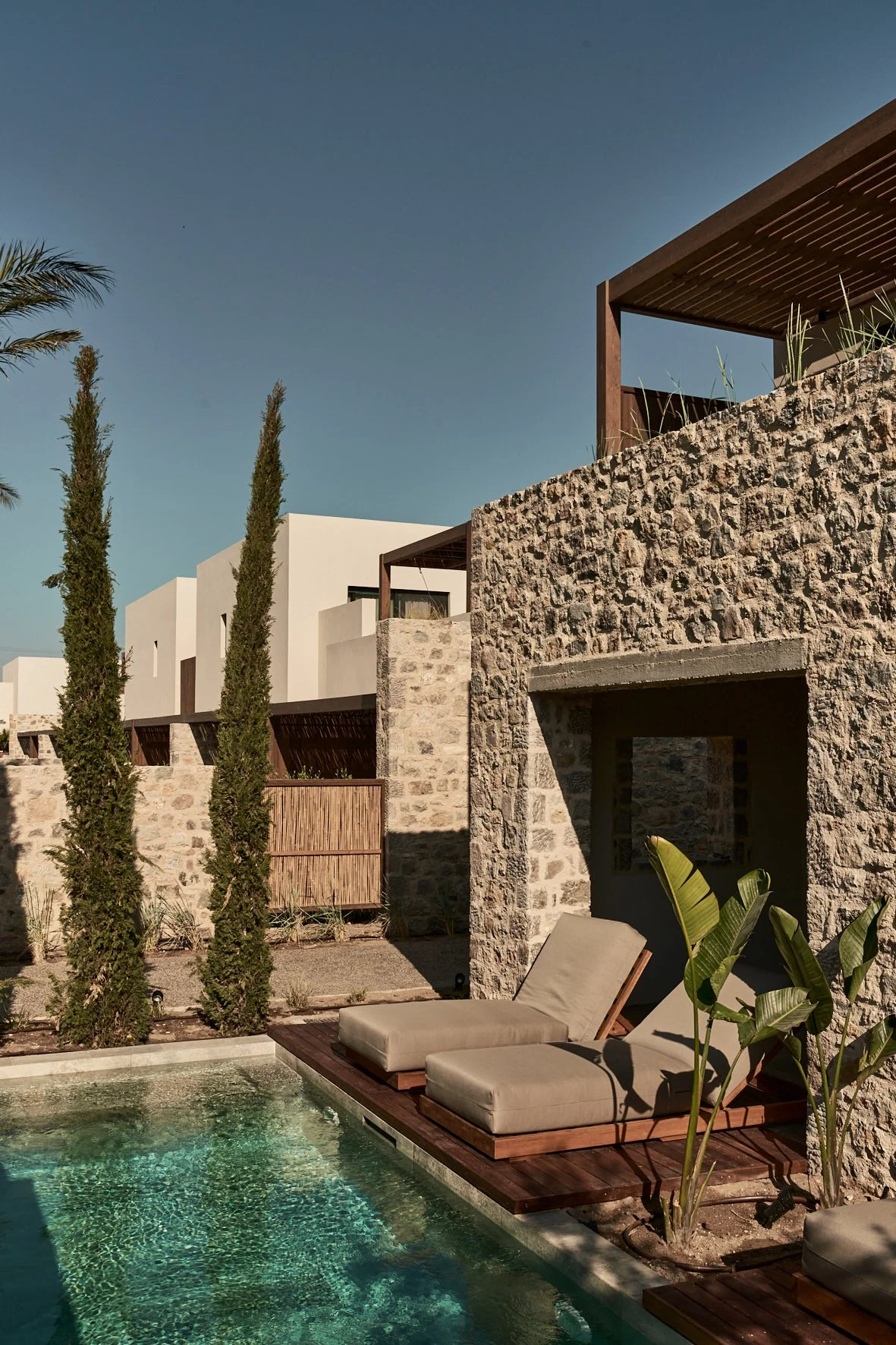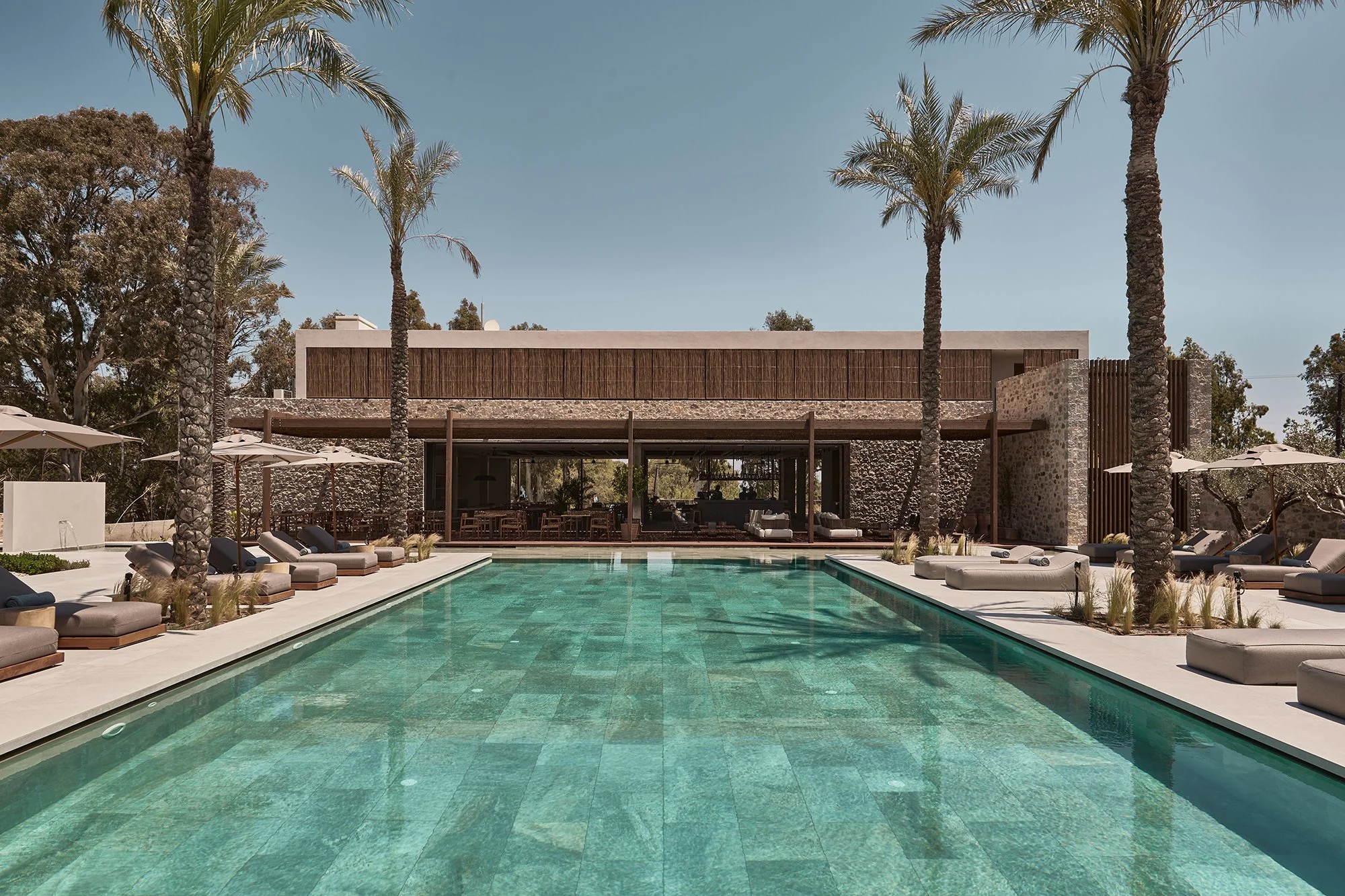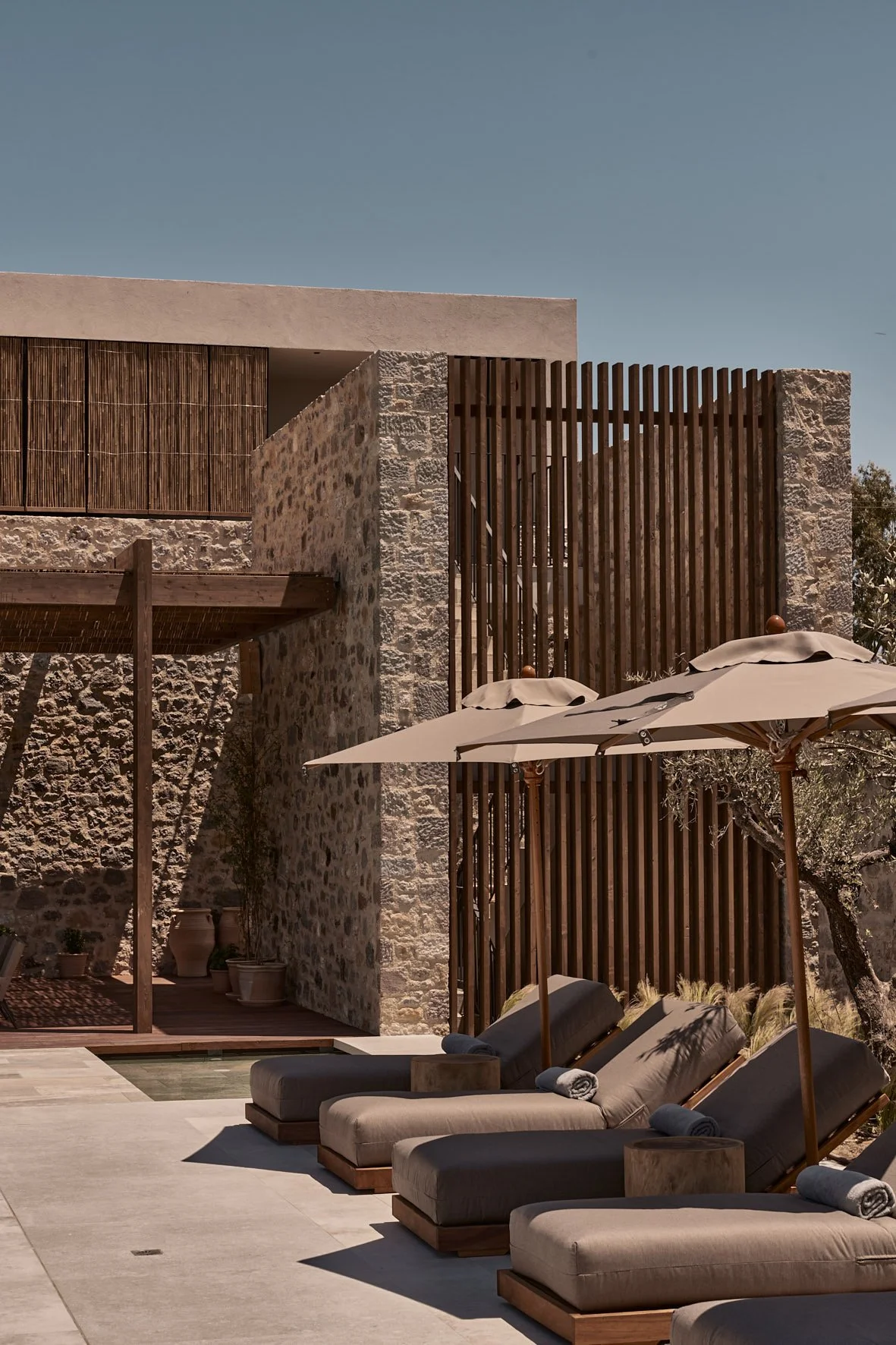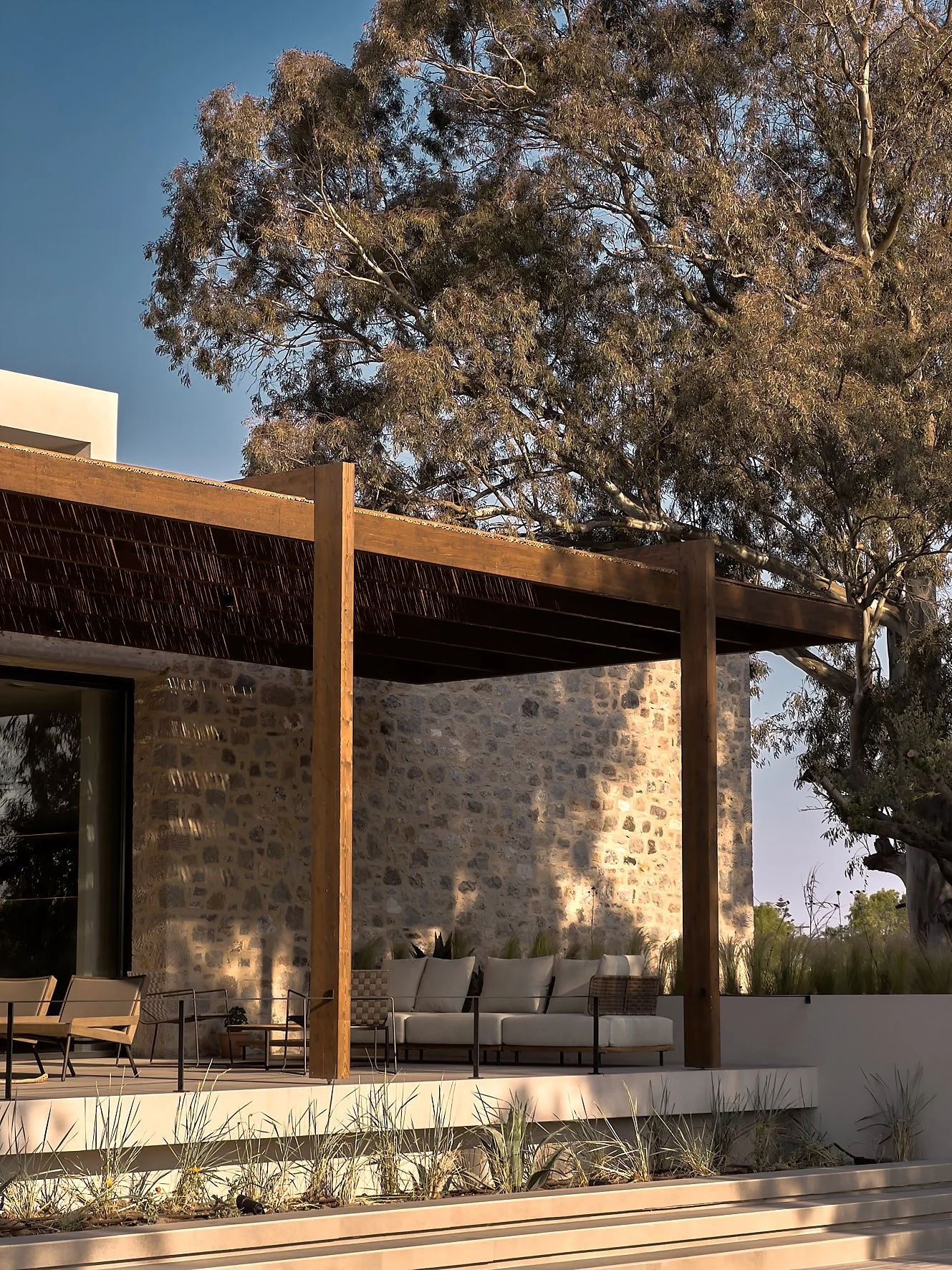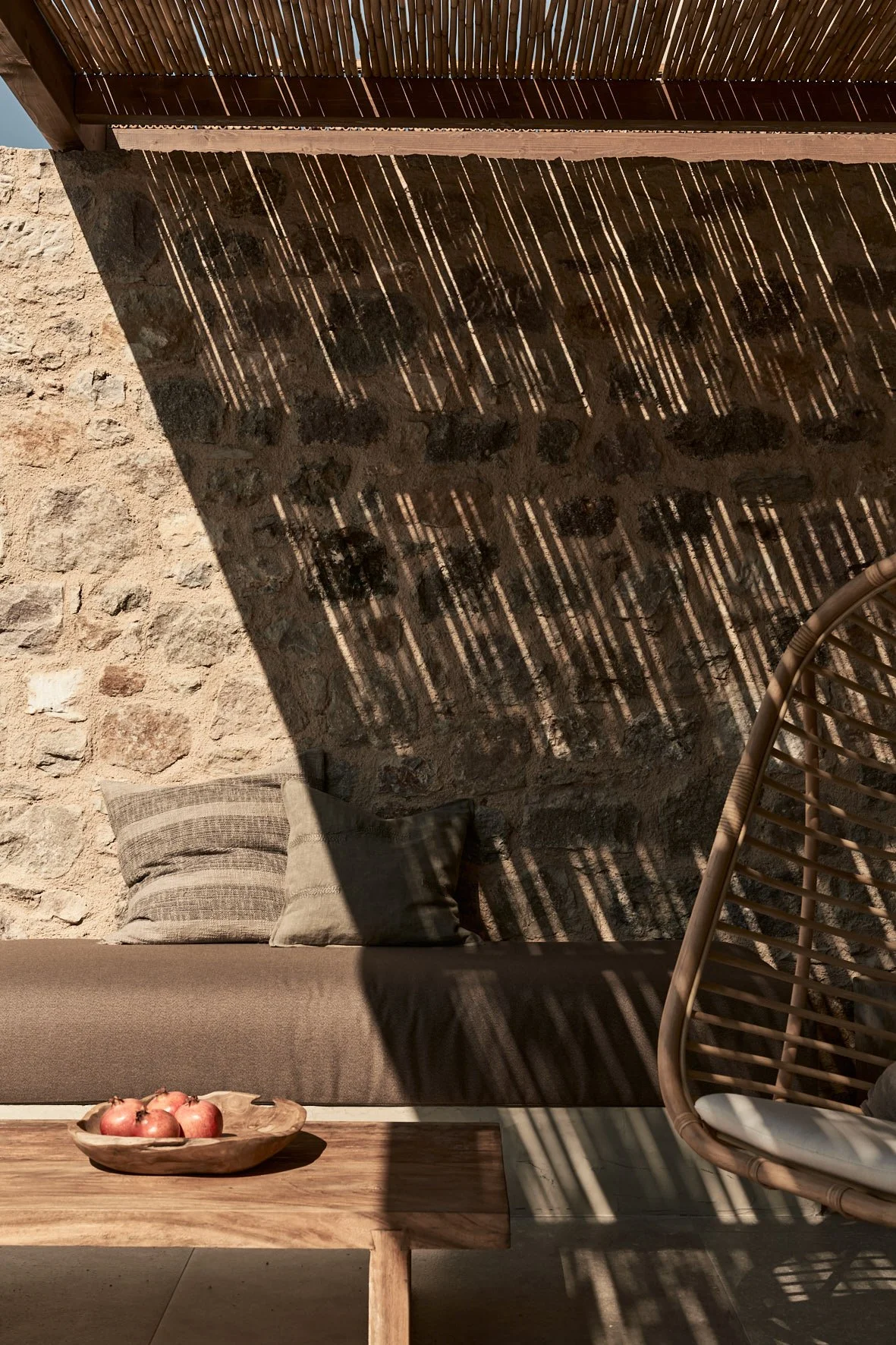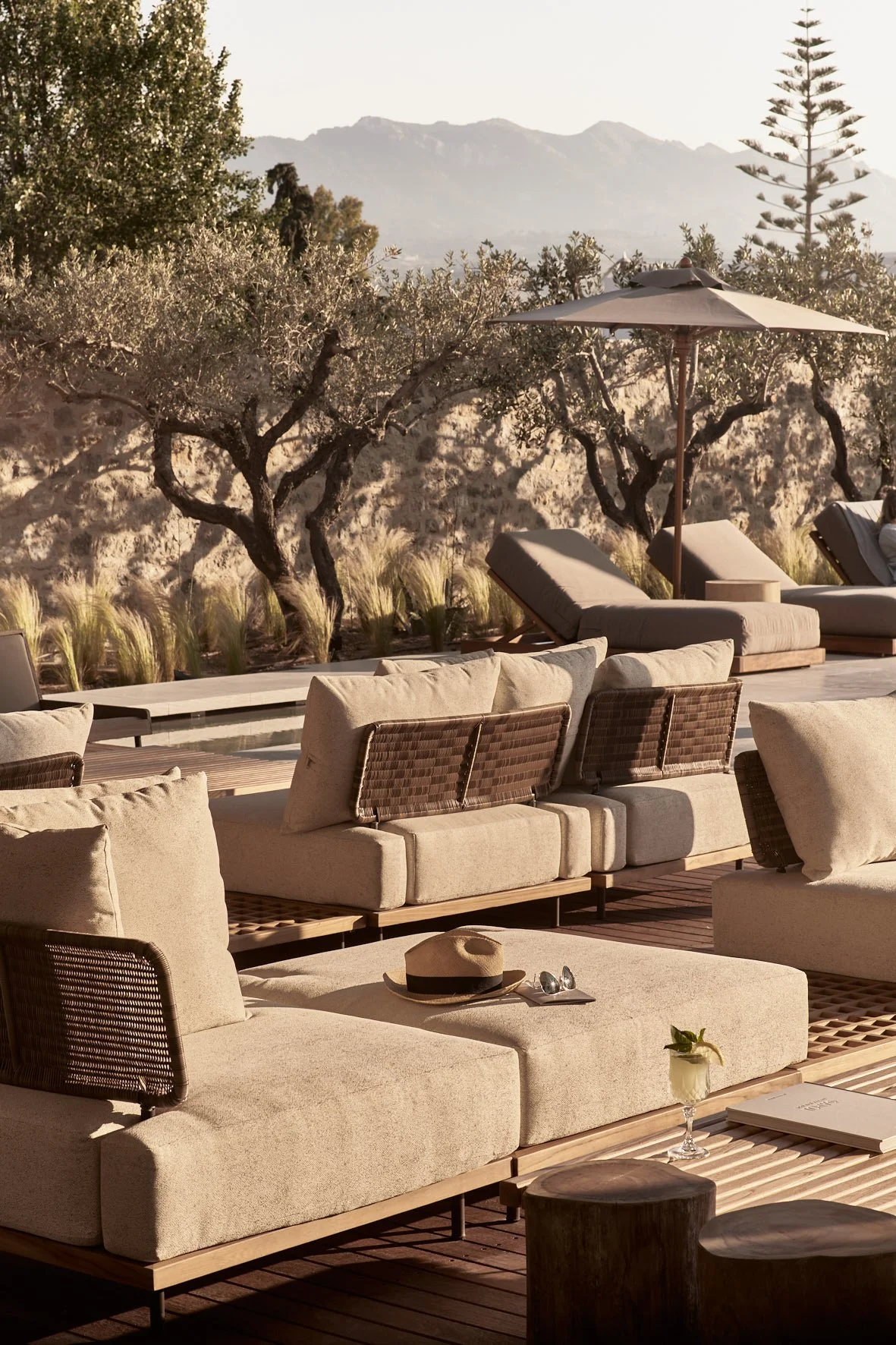Sustainability, locality, materiality
THEROS ALL SUITE HOTEL
A blissful mystic world where childhood memories of a carefree summer are brought to life by the scents of jasmine, the swaying of palms in the meltemi and the rustling of reeds. Meaning SUMMER in ancient greek, THEROS is the epitome of slow living, a holistic experience of well-being, based on the ancient greek philosophy of “Ef-Zin” and the greek ideal for hospitality. Its modern design is based on the principles of traditional architecture and local history.
Architecture, Concept, Interior design | Mastrominas Architecture
Landscape design | Mastrominas Architecture – Katerina Syrrakou
Structural design | Dimitris Theodosiou – STEMEKA IKE – Valis Panagiotis
MEP design | Petros Chatzipetros
Construction | LAMBI HOSPITALITY SA
Photography | CLAUS BRECHENMACHER - REINER BAUMANN
GEORGE PAPAPOSTOLOU
The public space is housed under a rectangular slab, where reception, dining and leisure functions develop freely, intensifying the feeling of relaxation and the homy feeling. The large single openings on the two facades blur the boundaries between indoor and outdoor space and the functions freely flow towards the two terraces, creating the feeling that everything takes place under a huge shed.
The entrance to the main building with its strict stone structure is through a wooden bridge over water, a eference to the landmark of Kos, the medieval castle. The welcoming reception with the monastic table is followed by the surprise of the single simple but with multiple stimuli space and the invitation to the inner aradise of the western terrace with the central swimming pool surrounded by tall palms and olive trees. Visual escapes are also free towards the eastern terrace with the row of eucalyptus trees and the beach.
The 47 suites are developed in introverted neighborhoods where the transition from the public - semi-public to the private space is marked by a differentiation of materials, plantings and finally the quality of the spaces. The peripheral straight paths of the complex are defined by reeds on one side and by stone blind walls on the other, built with a large mud joint in the traditional way found on the island and in the adjacent windmills. The solid stone wall protects the privacy of the rooms, while minimal narrow openings offer natural cooling. Passing through the castle doors to the communal courtyards with the clay pots with basils, leads to the discovery of the hidden paradise, with the private pools and the tropical vegetation of plants traditionally found in the town of Kos.
All ground floor suites have private pools and are surrounded by palm and olive trees. The upper floor suites have large verandas hammocks and roof gardens. The neutral colors and natural materials in the interior of the rooms increase the feeling of relaxation.
The bioclimatic architecture is enhanced by the investment in modern building technologies and the central electronic room control (KNX), aiming at sustainability and environmental ethics. A key element of the gardens is the use of native mediterranean species (olive trees, palms, cypresses, lemon trees, aromatic-medicinal herbs of Hippocratic healing tradition), that have minimal water requirements. Along the north path, a farm to table spot, of organically grown cherry tomatoes, invites the guests to taste them, while the staff and the owner of the hotel collect the tomatoes and the aromatic herbs for the kitchen.
The landscape design follows and underlines the architectural concept. Our goal was to represent the country of the island and the traditional gardens of the villages and Kos city. We used mediterranean species that have minimal water requirements. The complex is surrounded by reeds – a reference and memory of the initial state of the plot. We used many mature olive trees that we transplanted from our family’s olive orchard, and we produce our own oil that is used in the restaurant. There are spots with cypresses, lemon trees and the medicinal herbs of Hippocrates, that we use for our home-made infusions. A small vegetable garden provides fresh products for the breakfast. Exotic species, palm trees, jasmine and plumeria that dominate the urban gardens of Kos are planted in the inner courtyards.


